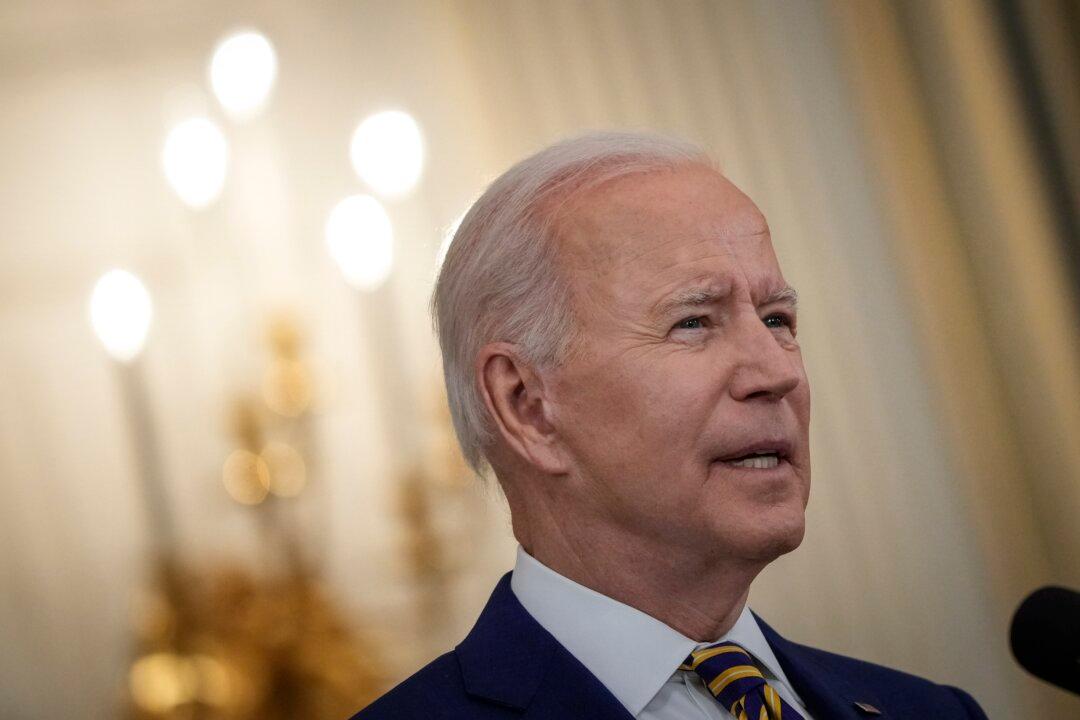President Joe Biden on Monday met with two Democrat senators who have so far refused to support some of the more radical party priorities, including an election bill that would federalize major components of elections.
Biden convened with Sen. Joe Manchin (D-W.Va.) in the afternoon at the White House. According to a White House official, the pair “discussed their shared commitment to voting rights.”





